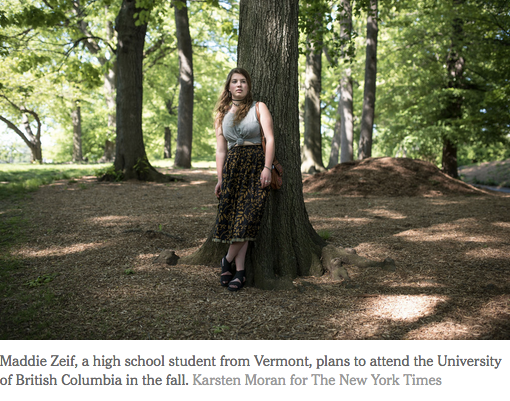Megan Ludwig, 23, from Prather, Calif., graduated from the University of Nevada with a bachelor’s degree in ecohydrology, which studies the interaction between water and ecosystems. But for her master’s, she decided on Canada. The economics were compelling.
“Canadian tuition is half the price per semester or less than most U.S. universities and scholarships for master’s positions are less competitive and more widely available,” Ms. Ludwig wrote in an email. She said she landed a stipend that was nearly double any of the offers she received in the United States.
Nancy Gorosh, 19, of Houston just finished her freshman year at Concordia. Last year, she was choosing between Concordia and Hofstra University in Hempstead, N.Y., on Long Island. Ms. Gorosh said her tuition and fees at Concordia next year will be about $12,400 a year; Hofstra would have been about $44,000.
Politics is on the minds of students choosing Canada for college, but their concerns are more nuanced than a simple dislike of Mr. Trump.
“I don’t want to spend my college years worrying about what’s going to happen if I need an abortion,” Ms. Zeif said. “I don’t want to spend my college years worrying about what happens if I get caught with a little weed in my bag.”
. . .
Jane White, of Carbondale, Ill., cited health care as a main reason for enrolling in a master’s program at Nipissing University in Ontario this fall. Under the Affordable Care Act, Ms. White was covered by her family’s insurance until she was 26. At 27, she’s now covered by a state plan, but she worries how she will be able to pay the $300 a month she needs for her asthma medication if the rules change.
Other medications require a periodic visit to a doctor, further raising the cost.
“My husband and I are both eligible for health care through the Canadian university,” she said.




